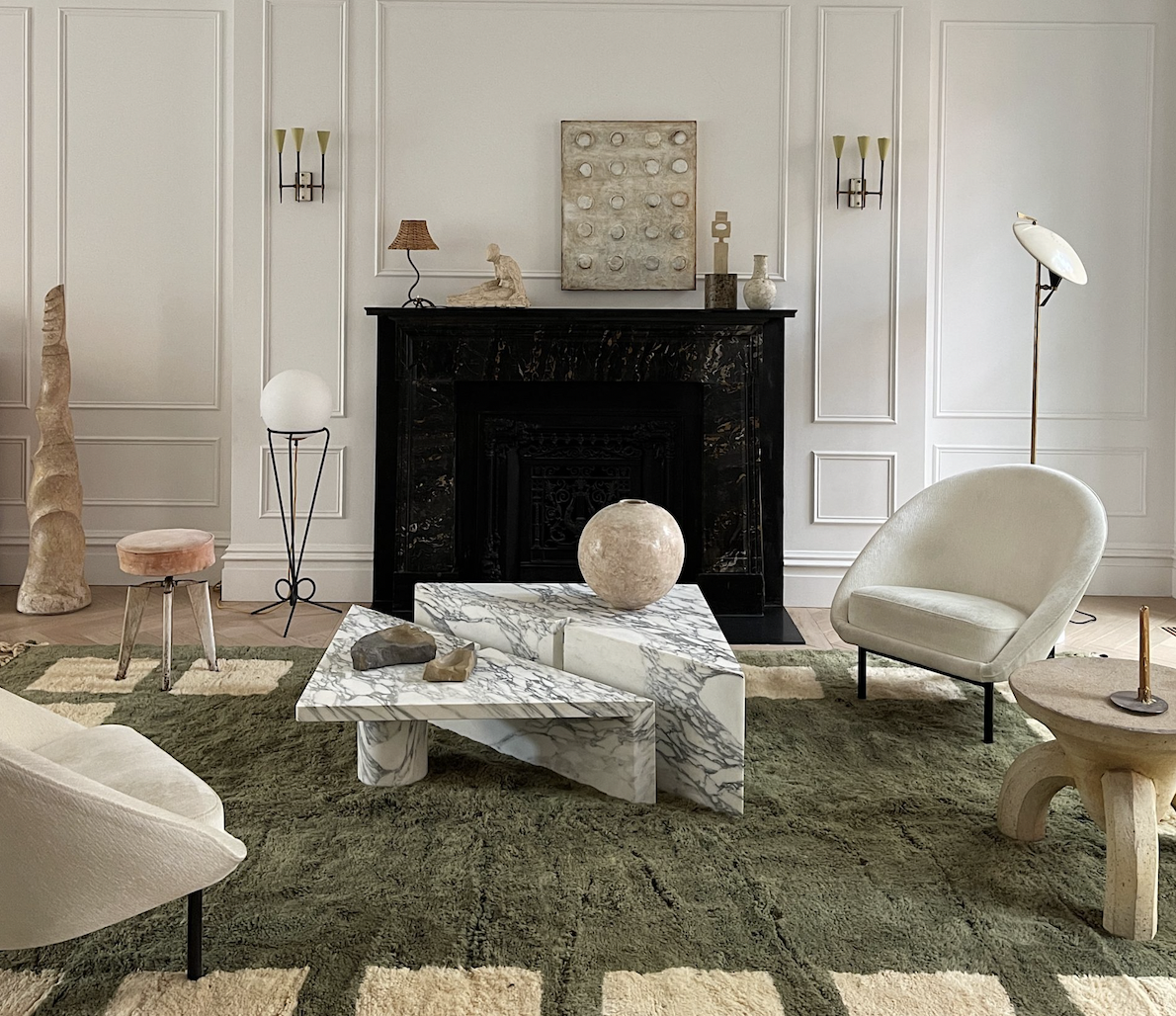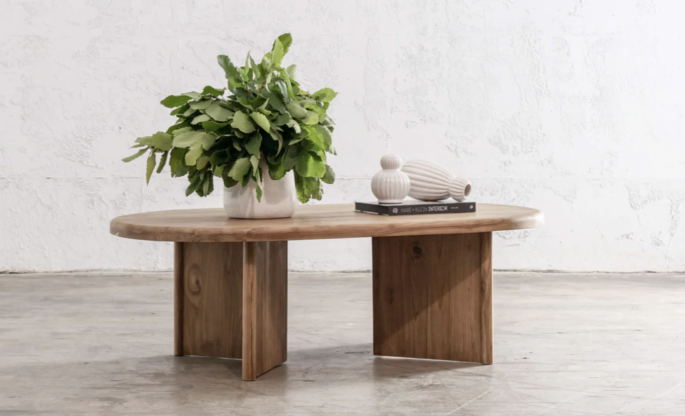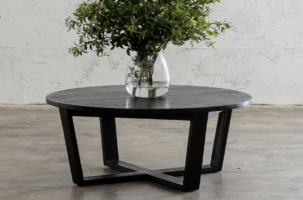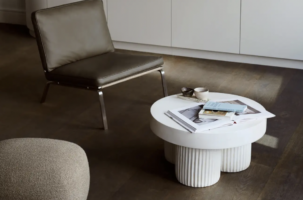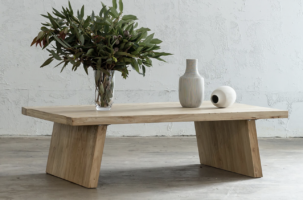A coffee table isn’t just a place to put down your coffee, put up your feet and showcase your remote. It’s like the campfire of the home. That’s why it’s important to find the right one. Should the table be square, rectangular, round or organic? And no one said a single coffee table was gospel. The choice depends on the shape of the room and the type of seating. A too-small table not only looks rinky-dink beside your L-shape sectional, it’s impractical: You need a surface within arm’s reach of every perch. But a steroidal coffee table has other flaws: It can seem clunky, invite clutter and impede circulation.
Don’t miss our picks and tips. Here is a quick guide to choosing the right table – from the quick fix to the future heirloom, the object of the moment, the classic and the curveball. Which will you choose?
Coffee tables anchor your entire living space and create a seating vignette where everything comes together.
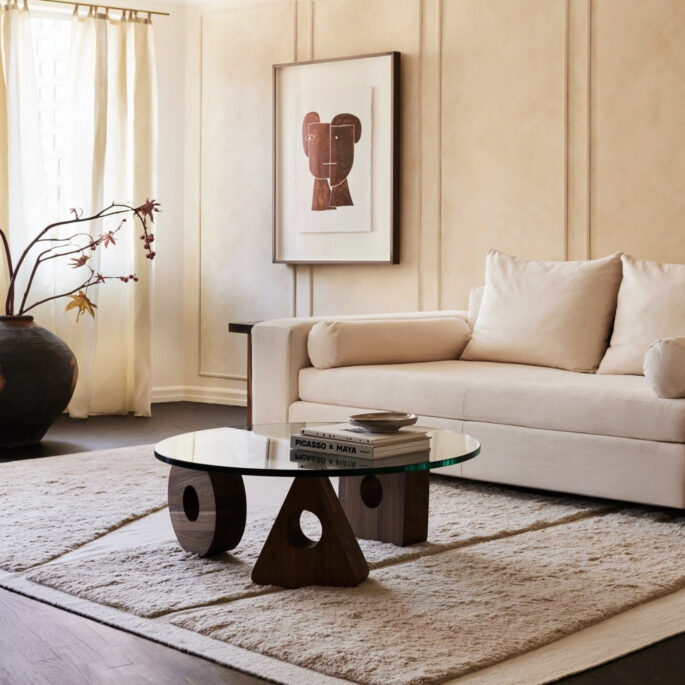
If it’s too big a coffee table will look clunky and careless, but the Cosmo Coffee Table by Arjé in walnut is a good choice, US $3,500. Photo: Pippa Drummond for Vogue.com
Round:
Flow is hugely important when designing a room, especially a small space. Round coffee tables are a designer’s go-to when it comes to opening up the flow of a room. If your room feels a little crowded or overwhelmed by straight lines, go for a round coffee table.
There are no hard edges to worry about, and that frees up a lot of visual real estate.
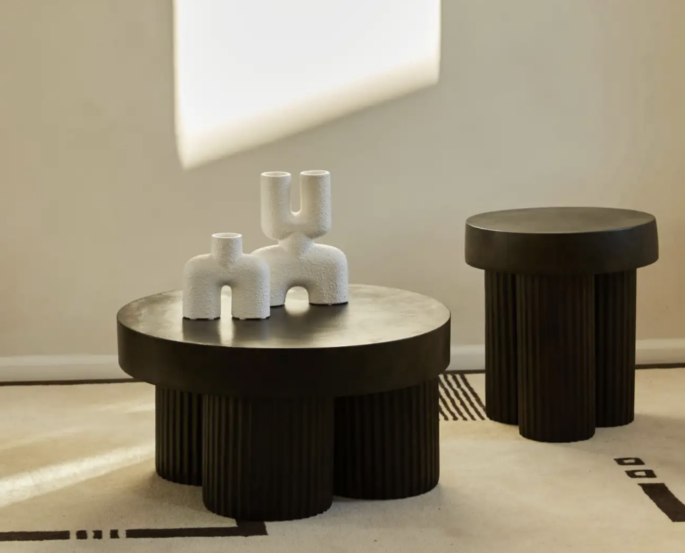
Gear is inspired by Brutalism Architecture from the mid-20th century. Set of two Sculptural ‘Gear’ Side Table Small and Large, $2000, 1sdtdibs.com
Rectangular:
A rectangular or square coffee table is as traditional as it gets. And traditions are traditions for a reason. These tables work well in almost any space. Finding the right size depends on how much room you have.
A rule of thumb: There should be 35 centimetres between the sofa and the table.
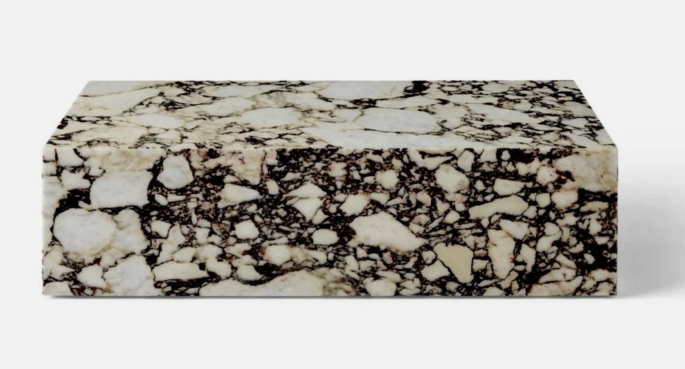
The Object of the Moment: Burke Decor ‘Plinth Low Table’,
Cocktail ottomans:
They are a great double-duty furniture piece. If your family loves to put their feet up but you don’t want them to ruin your coffee table, an upholstered cocktail ottoman is a great compromise. Many are large enough that you can style books, trays, and other objets on top.
You can also swap a large ottoman for two smaller X-cross benches.
Sculptural:
Sculptural pieces are statement makers. They work well in both small and large spaces but look best when surrounded by more-subdued furniture. Some of our favorite sculptural pieces include kidney-shaped tables, and dual level tables. To heighten the drama, try finding art that mimics the lines of the coffee table.
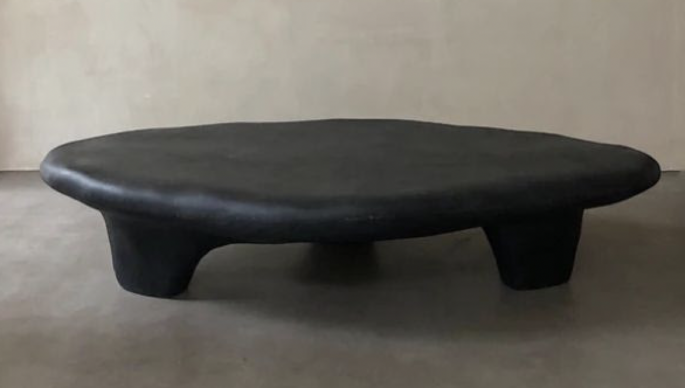
The Curveball: A Tripod Coffee Table By Kar Studio, $5,950, montanalabelle.com
A grouping of smaller easily rearranged pieces
Using a cluster of smaller-scale tables in place of a single monolith is a friendlier, more practical solution and key to a flexible, unstuffy living space. A lot of people want a super-long sofa, sometimes 9 or 10 feet. Placing a long coffee table in front looks too linear, so I prefer using side-by-side square tables or multiple round ottomans to break up the bulk.
As reconfigurable living spaces have become de rigueur, many furniture brands from West Elm to Hermès have expanded their offerings to include coffee tables that can migrate or cluster. The idea is to scatter them around a room next to chairs and tuck them under consoles, or group them to make a statement, especially when serving guests hors d’oeuvres.
Before you buy a new one, ask yourself a few questions: How does the height compare to that of the seats around it? It should be at seating height or a little lower.
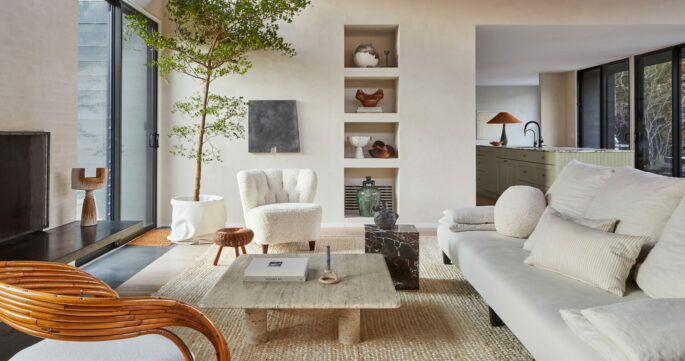
The Classic: A coffee table is like the campfire of the home. That’s why it’s important to find the right one. Photo: Eye Swoon
Things to Consider:
How Will You Use It Is this coffee table going to serve more of practical or decorative use? Meaning, will you need to place actual coffee cups on it or is it just a surface for decorative objects to add meaning and depth to the room? Defining how you will use the coffee table early on will help you decide what materials you choose. Marble stains easily so mug/cup rings and spills will show up. If that bothers you, then you might want to consider something that’s more durable and easy to clean.
Measure, Measure, Measure
Before you start the hunt online or in-store, be sure to have your measurements in hand. And we’re not just talking about the space your coffee table will take up on the rug.
You also need to measure the height of your sofa’s seat because ideally, a coffee table should be slightly lower.
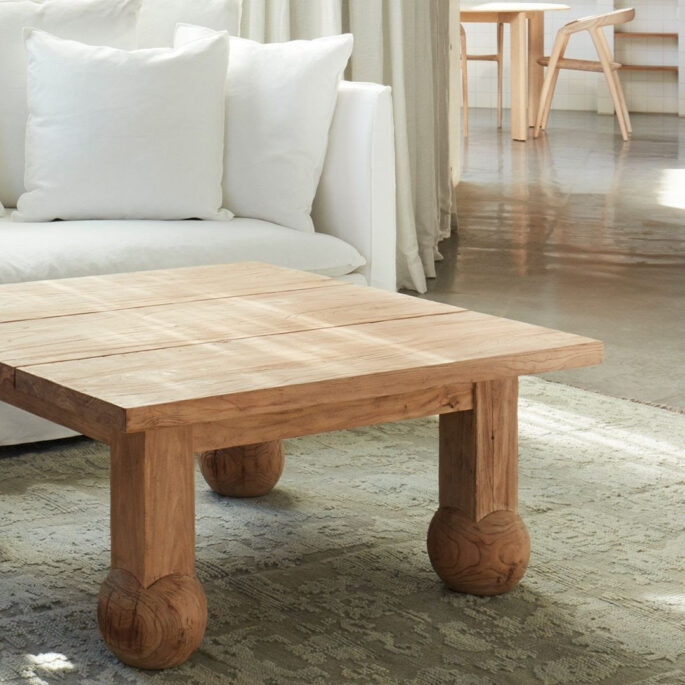
MCM House ‘Totto’ Rectangle Coffee Table, $2,200, mcmhouse.com
Figure Out the Ideal Size
While the coffee table typically takes center stage, the sofa is the real star of the show so you should look for a style that can sit comfortably in front of your sofa without blocking it from view. When figuring out the ideal size of your coffee table, the maximum size should be two-thirds of the sofa’s width. If it’s too big it will look clunky and careless, but if it’s too small it could look too diminutive and underwhelming.
Although, too small is often better than too big.
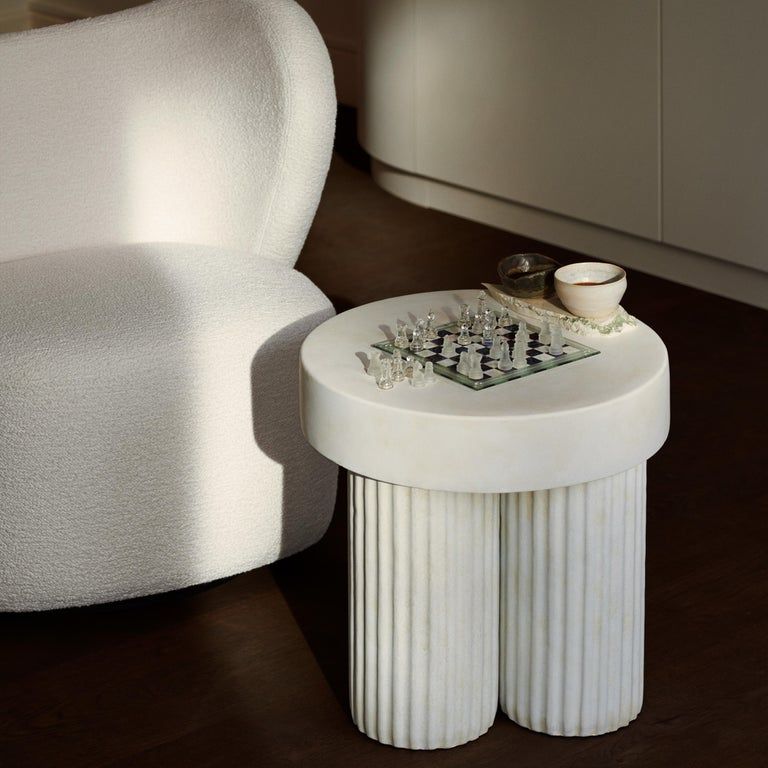
The Quick Fix: ‘Gear Table’ by Norr11, Tall, Chalk, $700 via 1stdibs.com
Find the Shape You Love
There are so many different shapes from triangular to circular, square, or rectangular so it’s important to establish that from the outset. There are some fun AR apps you can use now to position the coffee table in your room digitally to see how the different shapes will look in the space. You should also take your rug into consideration when choosing a coffee table shape.
If you have a rectangular rug then consider a circular coffee table to add that sharp/sinuous contrast we spoke of earlier.

MCM House ‘Barwin’ Coffee Table, $3210, mcmhouse.com

